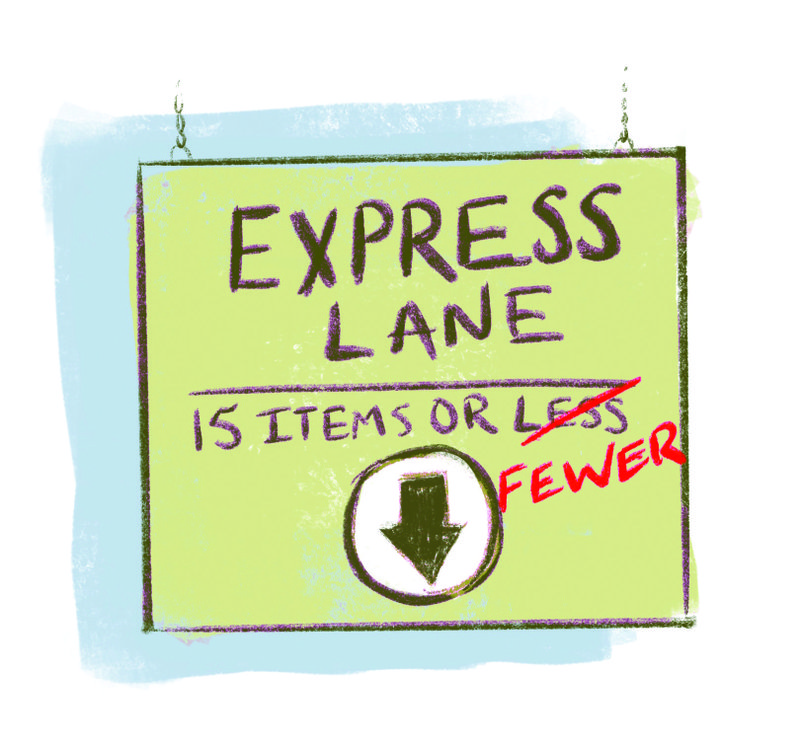October must bring out the grammarphile in people. I have been getting emails all month about common grammar mistakes.
I've gone over these before, but each merits a recap. To sound fancy, I will call this a grammar retrospective.
WHO VERSUS WHOM
I needed about 23 years of working at the newspaper to grasp which one to use. Before that, I always had to ask my friend Tim to back me up.
When you're trying to decide whether to start a question with "who" or "whom," ask yourself whether the answer would be "he" or "him."
If you can answer the question with him, then use whom. I remember it because him and whom both end in "m." (The answer could be "she" and "her" for women, with no helpful "m.")
So, let's say you're trying to ask, "Who (or whom) do you love?"
The answer would be, "I love him." So that question needs "whom."
But if you're trying to ask, "Who (or whom) is the boss?" the answer would be "she is the boss." So it's who.
LESS VERSUS FEWER
"Less" describes an uncountable, bulk amount. "Fewer" describes a countable number.
In the grocery store, the sign that says "15 items or less" is incorrect. It should be "15 items or fewer."
I should be eating less food.
I will start by eating fewer cookies.
I have fewer bills than you, but all the bills are 20s. So you have less money.
LAY VERSUS LIE
"Lay" shows action, the act of placing something somewhere.
I will lay the chocolate chips on the table but don't even think about eating them.
"Lie" just means to recline.
After someone revealed the ending of my favorite TV show, I had to lie down.
Most people use "lie" correctly, but "lay" is often used wrong.
Wrong: She lays on the beach until the tide comes in.
Now, just to throw a wrench into the works, I have to add that the past tense of lie is lay.
Right: He lay in wait for the mouse to appear.
THE WORLD OF GERUNDS
The three little letters "ing" can be difficult to explain.
If you take the verb "to cook" and add an "ing," it can be a gerund. A gerund is a noun created from a verb.
Cooking can be fun once you've had enough practice.
Raking the lawn is probably my least favorite fall task.
For me, procrastinating is an art form.
Next is the tricky part.
Wrong: I don't object to him cooking. I just don't want to be the one to taste the failures.
Why is this wrong? Because "he" is not what you may dislike. The samples from his cooking are what you dislike.
Right: I don't object to his cooking. I just don't want to be the one to taste the failures.
Wrong: Me mowing the lawn bugs him. So he can do it from now on.
Right: My mowing the lawn bugs him. So he can do it from now on.
Wrong: People often mock me procrastinating.
Right: People often mock my procrastinating.
Adding a wrinkle to things is the apostrophe in such sentences.
Wrong: She wouldn't have minded her husband singing in the shower if he could carry a tune.
Right: She wouldn't have minded her husband's singing in the shower if he could carry a tune.
Sources: m-w.com, Grammar Girl, The Associated Press Stylebook, Woe is I by Patricia T. O'Connor, Current English Usage by Wood, Flavell and Flavell
Reach Bernadette at
ActiveStyle on 10/23/2017

